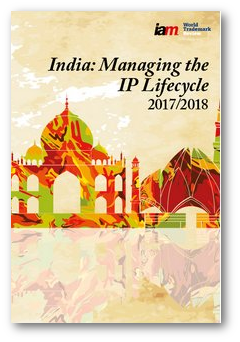
 Summary: Having 'championed' lobbying for litigation Armageddon in China (where IBM's practicing business units have gone), patent maximalists set their eyes on India
Summary: Having 'championed' lobbying for litigation Armageddon in China (where IBM's practicing business units have gone), patent maximalists set their eyes on India
IBM is trying to change the USPTO, having had a Director in it for a number of years (he's now working for IBM as a lobbyist). IBM is a patent bully and almost a troll (IBM still sells some products, so it's premature to start calling it a "patent troll").
It could be that an Indian patentee ends up owning what was considered a core Twitter patent. But he's not quite there yet. His U.S. Patent Application No. 15/053,889 is facing an Alice (ۤ101) rejection by the examiner, which he is appealing (the appeal was filed in late November). Most recently, the examiner sought to defend his rejection in his mid-February answer to the appeal brief.
Twitter's older and narrower patent was granted at a pre-Alice time; but the broader one was granted in 2015. The USPTO is clearly applying double standards so far, holding the same claims abstract in one case after not holding them abstract in another. That's not good.
Documents filed with the Delhi High Court show that Dolby Laboratories called off a dispute with Oppo last December after more than a year of litigation. For the US-based licensor of audio standards technology, the Oppo deal followed on two settlements with Indian defendants during the course of 2017.
Dolby made its first patent assertions in India in 2016, with Oppo and Vivo as its initial targets. In October that year, Delhi High Court Justice Rajiv Sahai Endlaw laid out an interim royalty payment regime requiring both defendants to deposit 34 rupees ($0.52 at today’s rates) with the court per device sold. According to SpicyIP, the court subsequently required the two Chinese brands to “furnish bank guarantees for the entire amount of the royalty payments due to the plaintiffs”.
[...]
Dolby’s latest cases demonstrate why FRAND and SEP issues will be high on the agenda here in Mumbai.